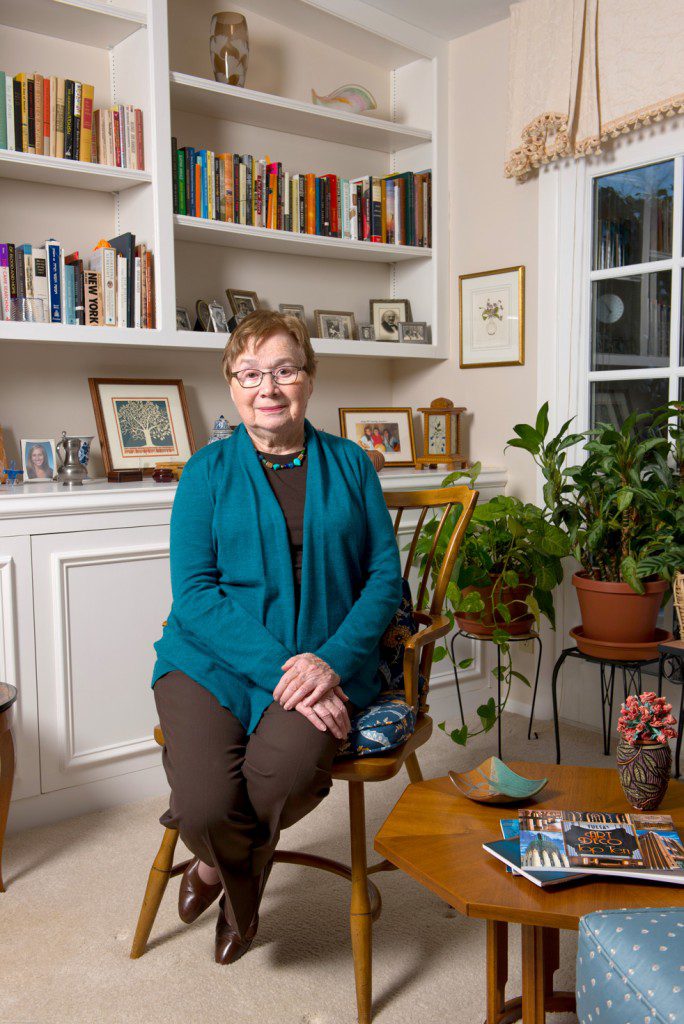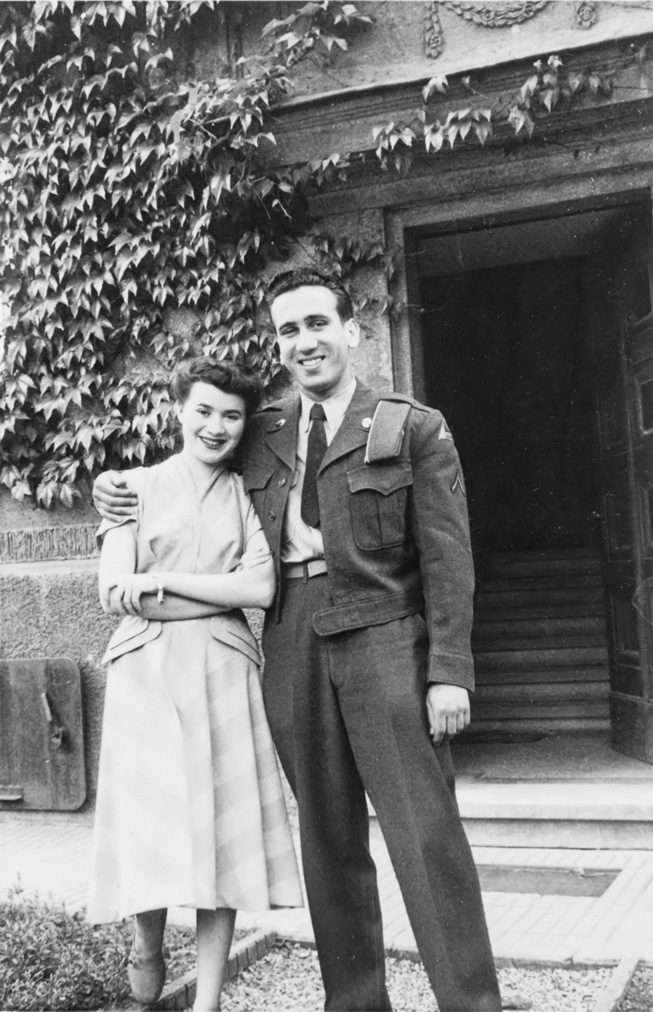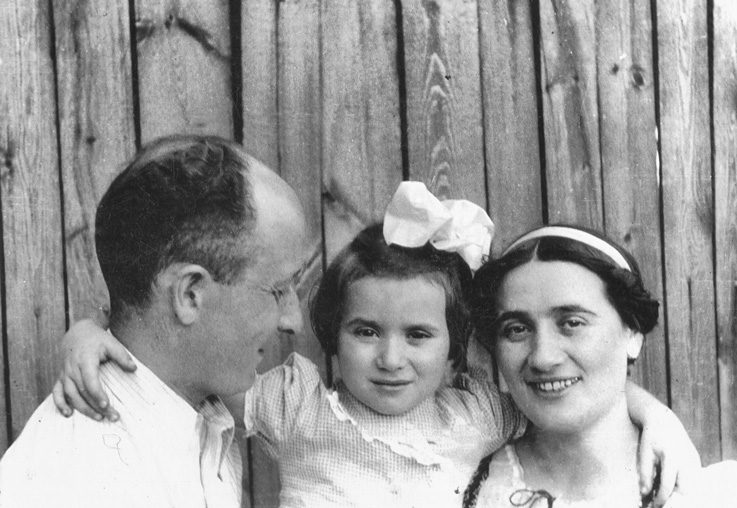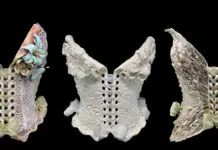
Eva Unterman’s childhood in Lodz, Poland, before World War II was what some would call idyllic. The only child of a middle-class Jewish businessman and a housewife, Unterman enjoyed a large extended family, summers in the countryside and was looking forward to beginning school. But in the winter of 1940, her childhood was shattered.
Unterman was only 6 years old when she and her family were ordered to assemble with only what they could carry – Unterman took one of her dolls – and march miles to the Lodz ghetto. She never saw her home again.
“Life in the ghetto was terrible,” Unterman recalls. “Hunger, disease and fear of deportation were constant. People were afraid we would be sent to Chelmno because it was nearby. We never heard the word Auschwitz.”
Yet, that very word, a name that has since become a symbol of the most appalling atrocities of the Nazi regime, was shortly to become a horrifying reality for Unterman and her family. Now, as the world approaches the 70th anniversary of the liberation of Auschwitz, Unterman recalls how after four years of desperation and disease in the Lodz ghetto, she, along with her father, mother and grandmother, were forced to make the now-infamous journey to Auschwitz-Birkenau that many never survived.

Photo courtesy Eva Unterman.
“We were told to assemble at the train station,” Unterman says. “My father lifted me up into the cattle car. We were crammed into the car for several days. We didn’t know where we were going, and there was no food or water.”
Unterman remembers the men and women of her family being torn apart before their clothing was confiscated, their heads shaved and they were forced into the showers. Unlike many who entered the camp and those notorious showers, Unterman and her family lived to leave again. Unfortunately for them, their nightmare had only just begun. After a few dark days in Auschwitz, Unterman and her female family members (and later, she learned, her father) were transported to Stuthoff concentration camp, where her grandmother was eventually murdered.
“Stuthoff was the worst experience,” Unterman recalls. “I was very sick, and conditions were extremely harsh.”
Although Unterman and her surviving family members were united safely in 1945 – despite a forced, deadly march to Terezin – her story did not end with the liberation of the Nazi camps.
Since 1961, when she moved to Oklahoma with her husband, Unterman has called Tulsa home and has gone on to share her tale of hope and survival with the next generation of Tulsans.
“I never spoke about my experience during the Shoah (the Hebrew word for Holocaust) until a teacher asked me to come speak to his students,” she says. “Then I realized I have a moral obligation to speak for those that did not survive, to tell their story. I began to speak more often and realized that if you tell one person, it ends with them, but if you tell a teacher, it reaches hundreds of young people, who will hopefully carry the story with them into the future. There are many people in our community who also saw the need for Holocaust education and commemoration. With their help, I set up the Council for Holocaust Education.”

This month, Unterman will once more share her story as she addresses the topic “The Last Transport: My Childhood During the Holocaust” for the Tulsa Council for Holocaust Education’s 18th Annual Yom HaShoah/Interfaith Holocaust Commemoration. The commemoration is sponsored by the council, a committee comprised of the Jewish Federation of Tulsa and the Tulsa City-County Library, as well as numerous interfaith organizations. After the event, Unterman will sign copies of her memoir, Through Eva’s Eyes. The book is written and illustrated by her granddaughter, Phoebe Eloise Unterman.
In addition to Unterman’s talk and book signing, the commemoration program includes an exhibit of projects created by Tulsa-area students. There will also be a musical performance and a candlelight vigil in memory of the Jewish children of Lodz who were killed during the Holocaust. Staff from the Tulsa City-County Library will have available for checkout many Holocaust books and media.
For generations who did not experience the horrors of the Holocaust first-hand, Unterman cautions, “In everyday life, we have choices about what we say and do. Our words can be weapons. Choose your words carefully. Respect one another. Learn about people who are different from you. You might find that you have more in common than you realize.”
Unterman will speak on April 16 at Congregation B’nai Emunah, 1719 S. Owasso, in Tulsa. The event is free and open to the public. Parking is limited at B’nai Emunah, but overflow parking will be available at Temple Israel, 2004 E. 22nd Place. A free shuttle service from Temple Israel to B’nai will begin at 6 p.m. and resume for an hour following the event.

























